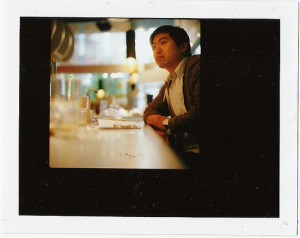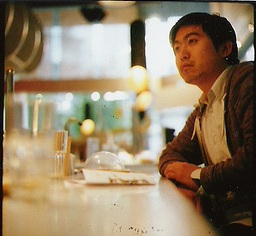It’s a Mad World.
Webster’s Dictionary defines “normal” as conforming to a type, standard, or regular pattern. It seems that this definition of “normal” could easily be applied to librarianship in many different ways. We instruct, conduct reference interviews, create library policies, catalog items, create metadata standards, gather circulation stats, and develop collection assessment plans. For most of us, we feel like this maybe our normal, because we may answer the same reference questions, teach the same workshops, and take several iterations to complete a project until our world of information is normalized or until a new set of standards, policies, and plans emerges that requires implementation. As a result, our profession may appear to be normal or even seem neutral to people outside of our profession.
In “The Myth of the Neutral Professional,” Jensen (2005) states, “A claim to neutrality means simply that one isn’t taking a position on that distribution of power and its consequences, which is a passive acceptance of the existing distribution” (p. 30). Does this “myth of the neutral professional” apply to the field of librarianship? Unfortunately, I think so. We have accepted the norm with respect to library employment. In the blog Hiring Librarians, it has been noted that months to year-long job searches are common (Weak, 2012). It is not unheard of for recent LIS graduates to take paraprofessional positions, continue internships, volunteer, or work other jobs in different fields (Vincent, 2013). Traditional librarians will have to contend with the advent of digital libraries and possibly the full automation of technical services. I think it will be the norm that coding and technical skills will be part of the job description for librarians. INALJ (I Need a Library Job) blog advocates “walking the line between computer science and library science will afford you more opportunities, and better your chances of landing a position” (House, 2013). Again, I believe we have accepted this norm of library employment and job duties. Do new librarians and recent LIS graduates have a place in today’s world of librarianship?
In hiring practices, most entry-level reference library job posts require a combination of library experience and technical skills. A recent ACRL article published in November 2012, written by Detmering and Sproles, compiled a literature review on job advertisement analysis. Results show entry level positions were mostly in academic libraries. In the article, the authors cite Reser and Schuneman’s study of job ads from 1988. Reser and Schuneman found only 20 percent of positions were classified as entry level and there was a trend for librarians to acquire more specializations and to hire from outside the library field. Also, librarians needed to have practical experience and tech skills. More recently, about 49% of job ads stated project planning and implementation, 26.6% included supervision and managerial duties, and 54.7% required technologically focused responsibilities (Detmering and Sproles, 2012). These findings illustrate entry level job ads put an emphasis on tech skills and practical experience. As one job applicant said, “you can’t get a library position because you don’t have experience and you can’t get experience unless you have a librarian position” (Detmering and Sproles, 2012, p. 543).
My normal has echoed the very same thing, a circuitous, hopeful journey to being gainfully employed at an academic library. It has been over two years since UNC-Chapel Hill conferred my MSLS. I have submitted countless applications, attended over 20 library interviews, which most notably included a UC Santa Barbara Library Fellowship interview via Skype, a University of Maryland Data Research Librarian Fellow phone interview, and a University of Southern California GIS Fellow Skype interview. I have yet to find full-time library employment. Since graduating from library school, I have been underemployed as a temporary library assistant, worked in private industry, and volunteered in different libraries.
In October 2010, I accepted a temporary library assistant position at University of Texas at Austin’s Bureau of Economic Geology and the position ended three months afterward. So, I decided to continue my journey to find full-time library employment in January 2011. During my employment search, I received several phone interviews. After several months, I received a rejection letter that stated, “we were greatly impressed with your background and qualifications, and we enjoyed talking with you to discuss the position. It was not at all easy to make a decision. Given the impressive strength of your resume and your accomplishments, we think it is very likely that you will be offered a challenging position elsewhere in the very near future.” The near future could not come soon enough.
In July 2011, I moved in with my grandmother in Los Angeles, California to save on food and rent. I continued my job search and settled for employment outside of librarianship. I accepted a data analyst position at LA Yellow Cab and started full-time employment. I began to hit the ground running with quickly learning new taxi cab terminology, taking on projects, and acquiring new technical skills. After six months, I decided to leave my position because I was not fulfilled and did not feel it was in alignment with my career interests. So, I started my library job search again and I felt I was not making any progress.
At the end of May 2012, I moved to Santa Barbara to take a break from my job search. It was a much needed break and I felt rejuvenated. I began to volunteer as a computer coach at Santa Barbara Public Library in August 2012. I was very fortunate to be part of a progressive volunteer program and acquired much needed practical customer service and instructional experience. Due to financial constraints, I moved back in with my grandmother in November 2012. Currently, I volunteer at East Los Angeles College Library, Pacifica Radio Archives, and work as a part-time tutor. I am very grateful for the continual support and practical training that I have received from my supervisors. Both volunteer opportunities have proven to be invaluable library experiences, which I hope will lead to full-time employment at an academic library.
I want to urge APALA members, library professionals, and hiring managers to not buy into the “myth of the neutral professional” and to defend our profession. As library schools continue to turn out new library graduates into an already saturated job market, I want to pose some questions. Do library schools need to curtail student admission? How can library schools better prepare librarians to enter the job market? What qualifications do new graduates really need to become employed? Do the job descriptions for an entry level academic library position realistically meet the skills and qualifications of new library graduates? There are post-MLS programs or library fellowships to further develop new librarians. Do we have enough of them? How successful are these programs? I believe these are important issues that we currently need to confront as a profession. I hope APALA members will seriously consider them as future topics of discussion, both verbal and written.
I also want to encourage my fellow job seekers to continue on their arduous journey to become professional librarians. l leave you with a quote from Thich Nhat Hanh, from his article “Returning Home” reprinted in Your True Home (2011). It has provided me with much inspiration: “Your true home is the here and now. It is not limited by time, space, nationality or race. Your true home is not an abstract idea; it is something you can touch and live in every moment. With mindfulness and concentration, the energies of the Buddha, you can find your true home in the full relaxation of your mind and body in the present moment” (p. 1).

Raymond Wang
Graduate of University of North Carolina at Chapel Hill
School of Information and Library Science, 2010
Resources
Chu, M. (2009). Ageism in academic librarianship. Electronic Journal of Academic and Special Librarianship, 10(2). Retrieved March 19, 2013, from http://southernlibrarianship.icaap.org/content/v10n02/chu_m01.html
Detmering, R., & Sproles, C. (2012). Forget the desk job: Current roles and responsibilities in entry-level reference job advertisements. College & Research Libraries.
House, N. (2013, Mar.18). Skills in need: Why coding and technical skills can benefit our job hunt. INALJ. Retrieved from http://inalj.com/?p=12916
Jensen, R. (2005). The myth of the neutral professional. Progressive Librarian, 24, 28-34.
Nhat Hanh, Thich. (2011). Your true home: The everyday wisdom of Thich Nhat Hanh. Boston: Shambala Publications.
Shaffer, C. (2011). Best practices for hiring academic librarians with faculty status and rank. The Southeastern Librarian, 59(3). Retrieved March 19, 2013, from http://digitalcommons.kennesaw.edu/cgi/viewcontent.cgi?article=1403&context=seln
Vincent, A. (2013, Mar. 6). Re: Making it work: Surviving as a librarian employed in another field [Web log comment]. In the Library with the Lead Pipe. Retrieved March 19, 2013, from http://www.inthelibrarywiththeleadpipe.org/2013/making-it-work/#comment-36092
Weak, E. (2012, Sept. 14). Further questions: How long did it take to get your first library job? Hiring Librarians. Retrieved from http://hiringlibrarians.com/2012/09/14/further-questions-how-long-did-it-take-to-get-your-first-library-job/.

